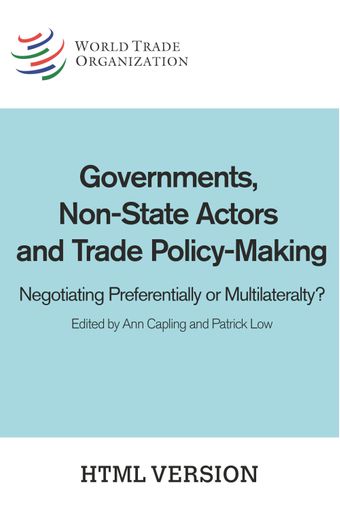Kenya

- Authors: Njuguna NgÂethe and Jacob Omolo
- Source: Governments, Non-State Actors and Trade Policy-Making , pp 11-11
- Publication Date: janvier 2010
- DOI: https://doi.org/10.30875/76b68e56-en
- Langue : Anglais
It is almost axiomatic that trade policies of a country affect in one way or another many sectors of that country and those of its trading partners. In other words, the impact of trade policy quite often goes beyond the participating countries or the direct beneficiaries, be they producers or consumers. One would have thought, therefore, that in line with the principle that the governed must have a voice on matters that affect them, there would be no decision, agreement, treaty, convention or protocol on trade signed without the input of the governed. This, however, is often not the case. Thus, despite the increasing and widening of democratic space in most African countries, trade policy-making in many of these countries is still shrouded in mystery, secrecy and mainly the preserve of the executive branch of government. This situation persists even though most African governments have over the last fifteen years or so tended to embrace participatory planning, which should enlist non-state actors (NSAs) policy-making. Thus, in trade policy-making, NSAs often remain at the periphery of decision-making. One reason for this situation could be that consultation forums, where these exist, are perhaps deliberately limited in numbers and scope of action and, therefore, do not carry much weight.
-
From This Site
/content/books/9789287046635c021dcterms_subject,pub_countryId-contentType:WorkingPaperSeries -contentType:Periodical -contentType:BookSeries -contentType:ReportSeries105


